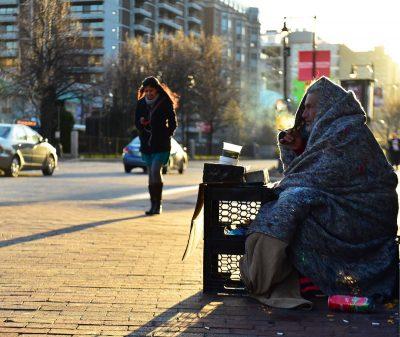The Massachusetts Senate passed a bill on Thursday that would make it easier for homeless individuals to obtain state IDs. If it becomes law, the Registry of Motor Vehicles will be required to eliminate fees and to accept alternative forms of residency documentation.

Sen. Harriette Chandler of Worcester sponsored the bill. She said in a press release that state IDs are necessary for things like getting a job.
“State IDs are essential for everyday life,” Chandler said. “Without one you can’t get a job, open a bank account, or access stable housing.”
Chandler also said that current state requirements make it challenging for homeless individuals to get state IDs.
“For people experiencing homelessness, especially unaccompanied homeless youth, a few documents and a fee are insurmountable barriers,” Chandler said.
Melissa Cording, director of development at Bridge Over Troubled Waters, a local organization that helps homeless youth, said that many of those she serves have previously struggled to find work because of the cost and documents required to obtain an ID.
“This leaves the youth that we work with vulnerable to things such as labor trafficking or other ways to get income that aren’t restricted by not having an ID,” Cording said. “It’s really a safety issue.”
She also said the state and RMV should work with organizations like Bridge Over Troubled Waters to inform homeless individuals about changes in ID policies.
“We’re the ones that have the connections and the relationships with youth,” Cording said. “It would be something that we can help facilitate and make sure that the youth who are in need of this have that right access to the information and what they would need to move forward.”
Chandler’s communications director Kevin Connor wrote in an email that the RMV would decide how to best spread word of the change if the bill becomes law.
“That is not specifically included in this legislation,” Connor wrote, “and it would be incumbent upon the RMV to broadcast any changes to the process – should this bill be signed into law.”
John Infranca, an associate law professor at Suffolk University, said that employers and landlords use state IDs for several purposes.
“They’d be using that identification to prove the identification of the person before them,” Infranca said, “but then also using it for the purpose of credit checks, checks in the context of prior rental history, checks in the context of sex offender status, any number of things.”
Infranco said other states already offer homeless individuals alternative routes to obtaining official identification.
“Other jurisdictions sometimes allow individuals to use an organization’s address if they’re homeless,” he said. “I think those things have been effective.”
Infranca also said that waiving ID application fees for the homeless would likely lead to more of them obtaining necessary identification.
“Certainly waiving fees would be significant,” Infranca said. “That fee, which in the grand scheme of things for someone employed might not seem significant, can be difficult to put those funds together [if a person is homeless].”
Residents around Boston said they support the legislation.
Gabriella Ryan, 23, of Hyde Park said that she agrees that homeless individuals should be able to obtain an ID without a permanent address.
“If something that important allows them to get housing and certain opportunities, I feel like that prevents them from breaking free from being homeless,” Ryan said. “There should be some sort of way for them to have a residency so that they can then get the ID.”
Jillian Ng, 38, of Roslindale said that she believes without an ID, homeless households can get stuck in a cycle of poverty.
“There is a population that doesn’t have a lot of resources. It’s kind of a cyclical problem where they don’t have a job so they can’t get a job,” Ng said. “It just kind of goes round and round.”
Yu Xiong, 23, of Back Bay said that he believes the bill could help solve the problem of employers not wanting to hire people who don’t have identification.
“I think the problem is that a lot of people wouldn’t hire [them],” Xiong said. “So if they have an ID and they want to work hard, they can get a job.”


















































































































